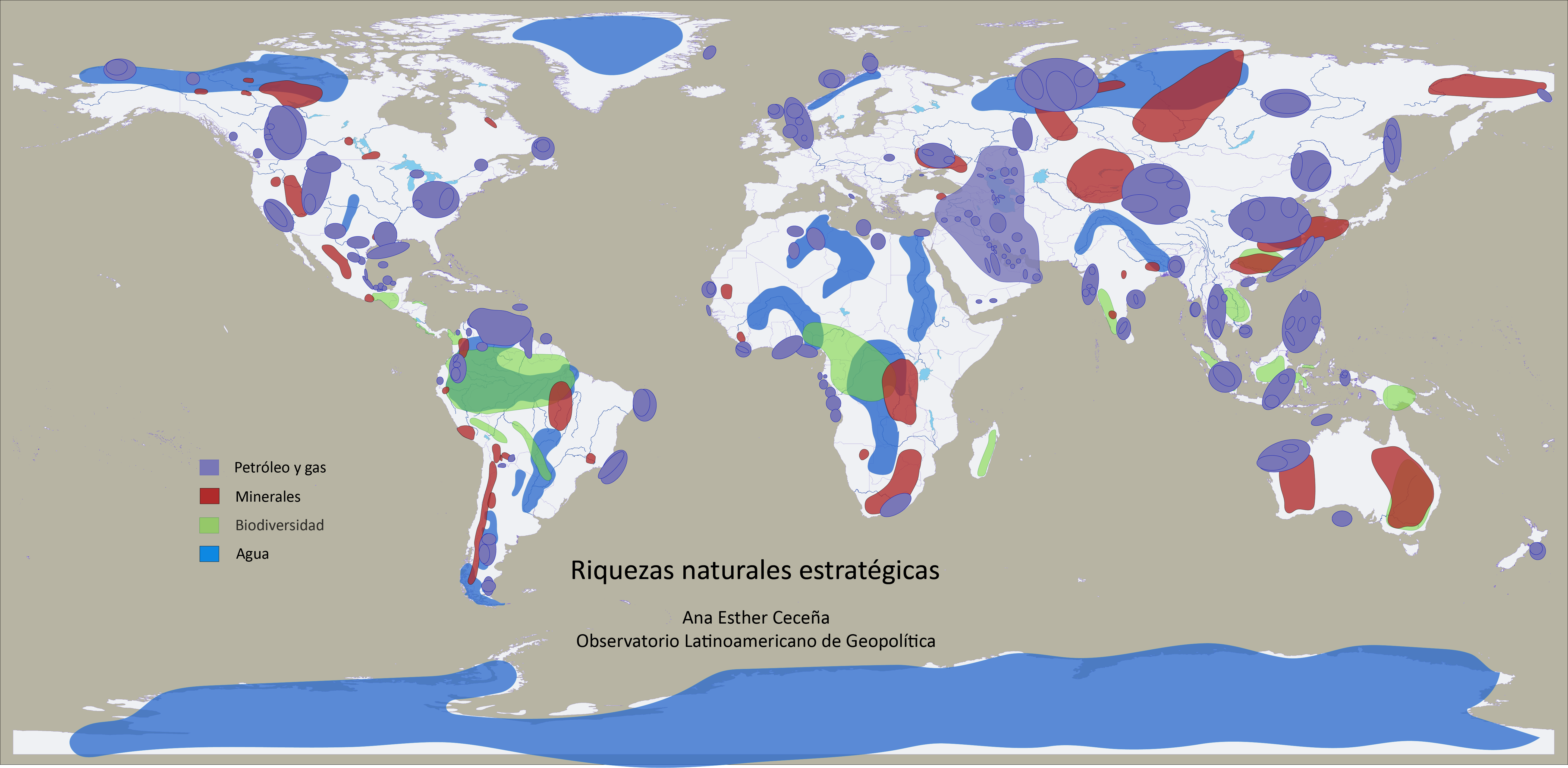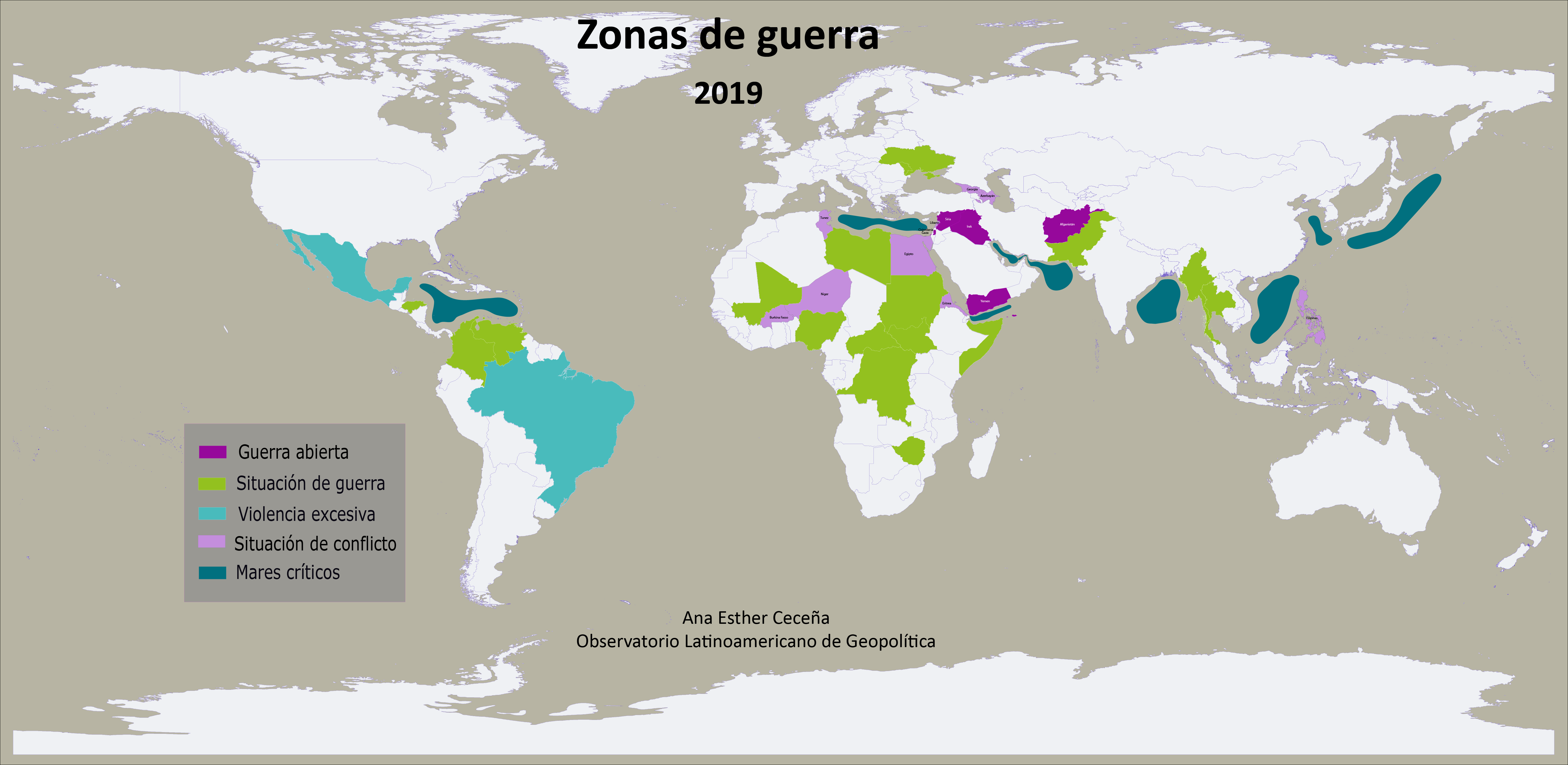Riquezas naturales estratégicas
Mapas sobre las riquezas naturales - 2020

Zonas de guerra 2019
Zonas de guerra en 2019

Síntesis informativa - 26 de mayo 2020
THE NEW YORK TIMES
Meat processing companies are reluctant to disclose detailed case counts.
As dozens of plants that closed because of outbreaks begin reopening, meat companies’ reluctance to disclose detailed case counts makes it difficult to determine whether the contagion is contained or new cases are emerging even with new safety measures in place.
Síntesis informativa - 25 de mayo 2020
THE NEW YORK TIMES
Remembering the Nearly 100,000 Lives Lost to Coronavirus in America
Toward the end of May in the year 2020, the number of people in the United States who have died from the coronavirus neared 100,000 — almost all of them within a three-month span. An average of more than 1,100 deaths a day.
Síntesis informativa - 22 de mayo 2020
THE NEW YORK TIMES
China, Faced With Challenges, Mounts Show of Strength at Party Congress
BEIJING — China’s top leaders on Friday made a show of strength to confront defiance in Hong Kong and the economic damage wrought by the coronavirus outbreak, even as they acknowledged that both had dealt a blow to the ruling Communist Party’s agenda.
Síntesis informativa - 21 de mayo 2020
THE GUARDIAN
Hospitals in Latin America buckling under coronavirus strain
Síntesis informativa - 20 de mayo 2020
THE NEW YORK TIMES
More Than 900 Children Have Been Expelled Under a Pandemic Border Policy
Since the coronavirus broke out, the Trump administration has deported hundreds of migrant children alone — in some cases, without notifying their families.
Síntesis informativa - 19 de mayo 2020
THE NEW YORK TIMES
Trump Turns His Ire Again on the W.H.O.
President Trump escalated his attacks on the global health group and threatened to cut its funding. He also said he was taking hydroxychloroquine, an unproven drug against the coronavirus, as a preventive measure.
Síntesis informativa - 18 de mayo 2020
THE NEW YORK TIMES
U.S.-China Tensions Threaten to Dominate W.H.O. Meeting
The World Health Organization is holding its first global assembly since the outbreak of the pandemic on Monday, an extraordinary virtual meeting of heads of state and health experts from around the world to try to coordinate an effective international response to a crisis that is far from over.
Síntesis informativa - 15 de mayo 2020
THE NEW YORK TIMES
When Shoppers Venture Out, What Will Be Left?
Retail sales fell 16.4 percent last month, the Commerce Department said Friday. That followed an 8.3 percent drop in March, producing by far the largest two-month decline on record.



